The Dark And Dangerous Side Of The Tunisian LGBTQ CommunityA Story by Farah El HabibA look into The Tunisian LGBTQ community(The following article contains details that can be triggering. Reader discretion is advised.) Interviews were conducted to extract Testimonials from real people active in the LGBTQ+ community and Organization work. Names were altered for their privacy. During this last decade, Tunisia successfully solidified itself as a window of hope in the Arab world through establishing an open, democratic system of governance. Tunisia was and will always be considered a country of contrast: Shunned by other Arab countries for being too accepting and rejected by western ones for being too “Islamic” Through the rise of its social awareness, Tunisia witnessed the coming out of its LGBTQ community from the shadows. While this community has thrivingly created a safe, family-like space for those who are abused and discriminated against due to their sexual orientation, it also witnessed the birth of dark and predatory behavior inside of it. Psychology has often proven that where there are young impressionable (especially abused) individuals in one space, predators are most likely lurking in its shadows looking for prey, and the LGBTQ community in Tunisia was full of marks. 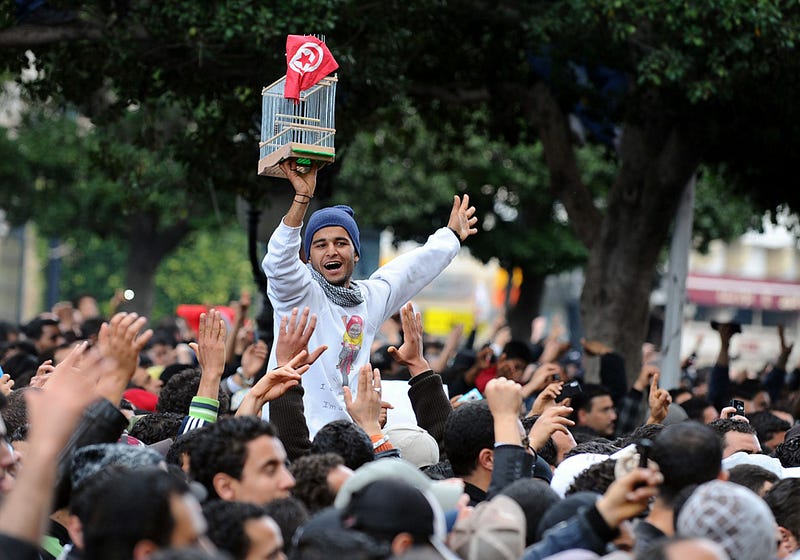 Even though Tunisia struggled economically after the 2011 revolution, it enjoyed a cultural moment. The values of third-wave feminism had implemented themselves into the masses, ushering in an era in which gender-bending and being sexually open in front of an audience was no longer degrading but liberating, often socially and financially empowering as well. Gammarth’s Clubs and Bistrot bars such as “Yüka” “Habibi” “Gingembre”, with their bright lights and bottle service, had successfully marketed themselves as a naughty-but-harmless night out for men and women, celebrities, and athletes of all sexual orientations. 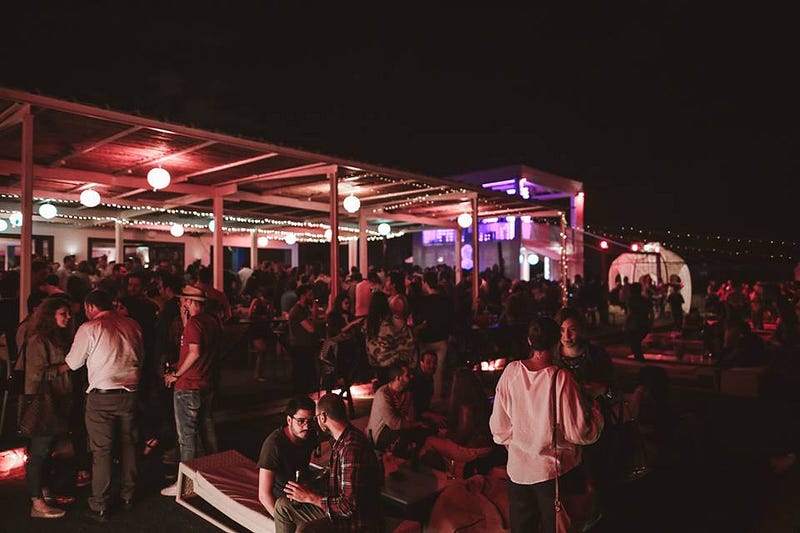 “The nightlife in Tunis is a refuge for us, where we can be ourselves and feel alive when there is nothing worth living for.” -E.M- (20-years-old) The country’s nightlife became the heart and soul of the community. Sadly on the other side of the spectrum, things were not as glamorous. Many outed LGBTQ members are often homeless, due to acceptance being a newfound quality limited mostly to the younger demographic. With discrimination being systemic in the workplace, and with few decent job opportunities, many turn to sex work. “It’s all about sex. Sex to survive. After the revolution, the cost-of-living increased rapidly for everyone. Who could say no to an opportunity for a sudden and unexpected influx of cash? Of course, this money comes with a lot of risks. Still, everyone makes the reach. Because here, money is the most powerful thing” -E.M- (20-years-old) 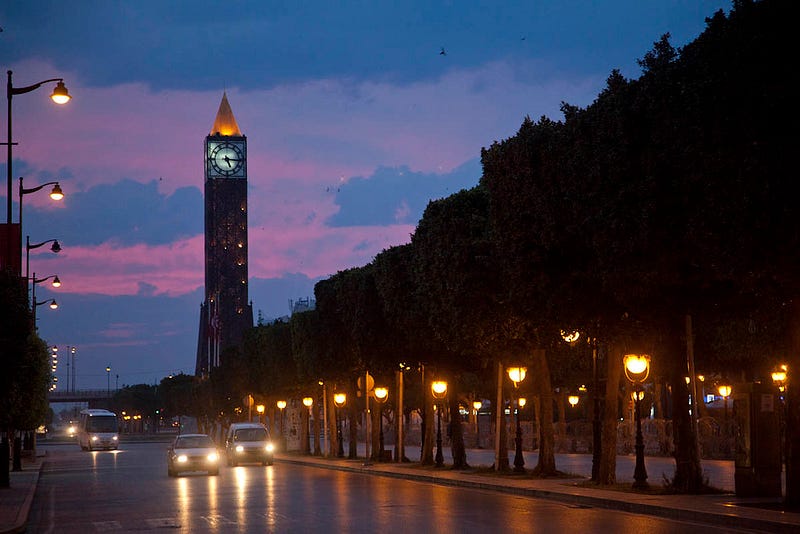 The activities of the darker part of the community are usually set in the City Center of Tunis (Centre-Ville). “Barrière” and “Jardin d’amour” the names of two of the most notorious prostitution hotspots. In a homophobic and pseudo-conservative society: homosexuals, crossdressers, and transexuals are a hot commodity in the Tunisian sex business. “It used to happen in Coffee Shops back in the day. Now, they are working up the corners looking for sugar daddies or someone who can throw in a dime, and maybe give them a place to spend the night. Sometimes the money wasn’t that great, but it’s the only thing available. Prostitution here is a hierarchy system making it a kind of commerce. Those at the bottom got paid either with money (between 15�"20 DT in exchange for sexual favors) or mobile data recharge cards. The fresh ones got the most clients especially if they are young. I’ve seen workers as young as 15 hustling these streets.” -E.M- (20-years-old) Back in the 80’s prostitution in the country was confined to two areas, one in Sfax and the other, Sidi Abdallah Guech in Tunis. The activity in these areas was regulated by police enforcement to secure the safety of those who work there. In 2017, brothels in Tunisia were officially closed and put out of business leaving 25,000 workers out in the streets to rot in poverty and abuse. “Since perverts are the most common clientele, payment is never a sure thing. The workers breathed sighs of relief when they make it out of those encounters alive.” -E.M- (20-years-old) Statistics show that LGBTQ people are more likely to be targets of murders than any other minority group in the country. The hate violence did not limit itself to those who work in the escorting business, but it also targeted people in the dating scene. “Dating as a young gay male in Tunisia for me is like a Hannah Montana moment. It’s a secretive double life because you cannot talk about it outside your close nit circle. We are considered a sin. Couples have to always act like friends because people are always watching, and you can never feel at ease being with your partner in public. It’s better if the relationship is kept between 4 walls.” -E.M- (20-years-old)  “Dating here is all about risk-taking. You go on a date with someone on an anonymous dating app so you can know whether the information they gave you is true or false. They could be an insecure catfish or a homophobic camouflaging themselves to trap LGBTQ people. Many who go on dates on apps such as Grindr and Tinder end up robbed, beaten, murdered, or cuffed by the police.” -Firas- (19-year-old) On February 11th, 2019, a Sfaxien 26-year-old male was prosecuted for being a homosexual after he filed a complaint about being raped. The young man was headed on a date with a person he met on Facebook. according to the police report. Arriving at the meeting, the victim found himself facing two men who raped him and then stole his belongings. He went to the police station to report his attackers, but the prosecutor ordered an anal test, a disputed but frequent practice in Tunisia, to establish whether he had ever had homosexual relations in the past. The Tunisian court sentenced the victim to 6 months in prison for sodomy, and 2 months for slanderous information. Whereas, the other 2 men were each sentenced to 6 months in prison for sodomy, 15 days for violence, and a month and a half for theft. Government repression of the LGBTIQ community is generally justified under Article 230 of the Tunisian Penal Code, which punishes sexual acts between two consenting adults of the same sex by up three years of imprisonment. On May 18th, 2015, The Association Of Shams was registered under the Tunisian Law. An NGO that campaigns for sexual minority rights in Tunisia. According to Shams, their goals center around: · Raising awareness about sexually transmitted diseases · Mentoring and supporting sexual minorities around the country by providing financial, emotional and psychological help. · Defending the rights of minorities and provide a safe environment regardless of their sexual orientation or gender difference. “The Tunisian LGBTQ Community is very complicated. It is split into two sides. There are leaders in it that encourage the members of the community to be good citizens in our society while providing them with care and shelter. While other ones believe in the term “positive discrimination” that homosexuals should react to the segregation with “heterophobia” and that homosexuals must have an isolated community. The first LGBTQ+ lawyer who is supposed to be the representative of our community is continuously attacking Islam and its ethical values in the media.” -Firas- (19-year-old) The type of behavior that is exercised in the LGBTQ+ society often excludes disagreeing members while deepening the division between the community, and the conservative heteronormative general public. “It’s hard to stand up to the only family you have after your real one abandoned you. In the LGBTQ community, some people call themselves “Mothers”. They act as caregivers for younger individuals who are confused and homeless. I had a wonderful experience with my Mom. She taught me everything about the whole gay community. She made me feel confident, but this relationship soon stopped being healthy. Once the power was projected on me and I felt over-controlled, I started to develop a personality of my own and my beliefs changed. Somehow that was a threat for her, and she reacted negatively by creating obstacles in my life and making it scary for me. “ -E.M- (20-year-old) Having no real power in the outside world, some people take on this type of custodian work at first with good intentions but it soon becomes their source of validation. The need to dominate their small societies is their form of demonstration of power, and it leads their victims (often homeless minors) to develop a “Stockholm Syndrome” type of bond that later escalates to emotional abuse, and in some cases physical as well. “These associations are financed by foreign countries that specialize in helping LGBTQ+ people worldwide. These investors and ambassadors must control and oversee where their financial support is being spent. Because money is being wasted somewhere, and the people in the community are not provided with the advantages that these minority associations claim like they are offering it.” -Firas- (19-years-old) On July 25th, 2019, President Béji Caïd Essebsi was pronounced dead. This event brought forward the Tunisian 2019 elections. Mounir Baatour, lawyer and leader of the country’s fringe Liberal Party. Also, co-founder of Shams, an LGBTQ rights group announced his candidacy making him the first openly gay presidential candidate in the Muslim world. 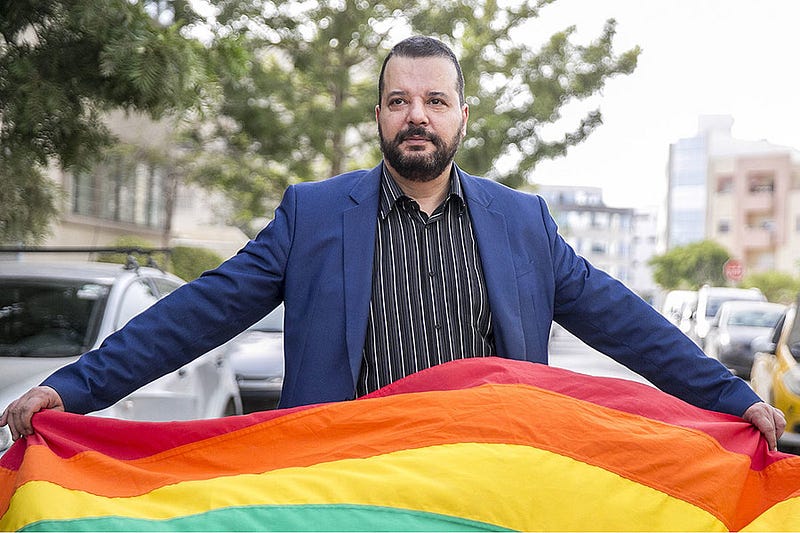 At first glance, this news appeared to be a positive game-changer in the Tunisian political sphere. But, it was soon revealed by allies and partners of the LGBTQ+ Tunisia that Baatour not only is a threat to activism but also represents a big danger to the community. Numerous complaints were filed against Mounir Baatour, from many LGBTIQ+ people, who have been used and abused sexually (many of them being minors) while taking advantage of their vulnerable fragile situations. This was confirmed in March of 2013, Baatour was arrested for “sodomy” after he was caught having sex with a 17-year-old boy in a luxury hotel in Tunis. He was sentenced in June of the same year to three months’ imprisonment under Article 230 of the Tunisian Penal Code. Activists at the time criticized Baatour being indicted for what was regarded as a “sexual relationship between two men” while in fact, it was a “sexual assault on a minor”, an offense criminalized under Tunisian law and the International Convention on the Protection of the Child signed by Tunisia. Some pointed out that the boy came from a “low income” neighborhood suggesting that Baatour exploited the boy’s economic situation to seduce him with money to have sex with him. “Nobody was shocked when the news came out. It was going on for a long while. He would lure in minors who suffered discrimination and abuse in the name of the association. He would groom them and then sexually assault them. Many of them were as young as 16 years old. He would continue his abuse until it reaches its final step. He would shave off their hair, making them bold and then he would break up with them. The shaved head was like a stamp of humiliation in the community.” -Firas- (19-years-old) Baatour exercised the outing strategy: In which he publicly reveals certain member’s sexual orientations. This resulted in the violation and invasion of people’s privacy, noted on many occasions, that the NGO presided by Mounir Baatour, Shams, have shared private information of certain LGBTIQ+ people without their consent just for the sake of having “a scoop” on certain news, which does not respect people’s privacy and puts them in danger. His establishment also encouraged the normalization of the Zionist entity and islamophobia, which goes against public ethics and values. Organizations such as (Chouf, Mawjoudin, Alwani ..etc) came forward condemning his actions and invited all members of the LGBTIQ+ community not to support the nomination of Mounir Baatour by stopping the media coverage happening regarding his candidacy. Ali Bousslemi the executive director of Mawjoudin one of signatory associations stated “We remind the people daily of our firm position and refusal to consider Baatour as a representative of the LGBT community” Yousra al-Saghiri of “Chaml” issued a statement as well, a few days after Baatour’s candidacy “The objection to Baatour’s candidacy relates to his repeated harassment of minors. The LGBT community in Tunisia does not tolerate these practices regardless of whether the person is gay or not”. On August 14th, The Independent High Electoral Commission announced the 26 candidates that had been accepted for the early presidential elections scheduled for 15 September. Batour was one of 71 rejected candidates. 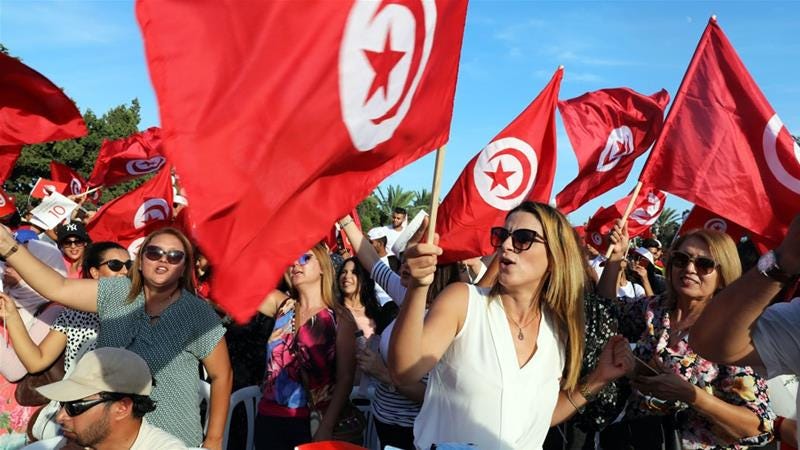 Written By: Farah Lahbib © 2020 Farah El Habib |
Stats
3749 Views
Added on February 3, 2020 Last Updated on February 4, 2020 Tags: society, lgbtq, equal right AuthorFarah El HabibTunis, Tunisia, TunisiaAbout20 year old, International Relations student from Tunisia. Currently working as a freelace writer/journalist for online magazines. more.. |

 Flag Writing
Flag Writing